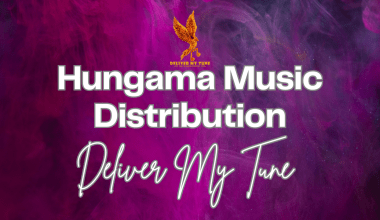If you’re an aspiring musician or a seasoned artist, you’ve probably heard about music distribution companies. But what exactly is a distribution company for music, and why does it matter? Let’s break it down into simple terms.
What Does a Music Distribution Company Do?
At its core, a music distribution company acts as the bridge between artists and their audience. It’s their job to get your music from your studio to the platforms where your fans can listen to it. These platforms include popular streaming services like Spotify, Apple Music, and Amazon Music, as well as traditional physical formats like CDs and vinyl. Think of them as the delivery service for your songs.
For example, if you release a new single, the distribution company ensures it’s available on all the major streaming platforms so listeners around the world can find it. Without a distribution company, getting your music into the right hands (or headphones) can be a daunting task.
Why Do Musicians Need a Distribution Company?
You might wonder, “Can’t I just upload my music directly to Spotify?” The answer is—not quite. Most streaming services don’t allow artists to upload songs directly. That’s where distribution companies step in. They handle the technical and logistical details, making sure your tracks meet the platform’s requirements and are properly tagged with metadata like song title, artist name, and genre.
Beyond technical support, many distribution companies also offer valuable tools like analytics to help you track your music’s performance. Some even provide marketing assistance to help promote your work. Whether you’re an independent artist or signed to a label, partnering with the right distributor can open doors to a wider audience.
Types of Music Distribution Companies
Not all distribution companies are the same. Here are the main types:
1. Traditional Distribution Companies
These companies work closely with record labels and focus on physical formats like CDs and vinyl. They’re essential for artists aiming to stock their albums in stores or sell merchandise at concerts.
2. Digital Distribution Companies
These are the most common today, specializing in getting music onto streaming platforms and digital stores. Examples include DistroKid, TuneCore, and CD Baby.
3. Full-Service Distribution Companies
These companies handle both physical and digital distribution, making them a one-stop shop for artists looking to reach fans in multiple ways.
How to Choose the Right Distribution Company for Your Music
Selecting the right distributor is a crucial decision for any musician. Here are some factors to consider:
1. Fees and Revenue Split
Some distribution companies charge a flat fee, while others take a percentage of your royalties. Make sure to understand how much you’ll be paying and what you’ll get in return.
2. Platform Reach
Check which platforms the distributor covers. Ideally, you want a company that distributes to all major streaming services and digital stores.
3. Additional Services
Some distributors offer extra services like playlist pitching, promotional campaigns, and royalty collection. If these are important to you, look for a distributor that provides them.
4. User Experience
Ease of use matters, especially if you’re managing your music career independently. Look for a platform with a simple interface and good customer support.
How Do Distribution Companies Help Artists Grow?
A good music distributor does more than just deliver your tracks to platforms. Here’s how they can help:
- Global Reach: They make your music accessible to listeners around the world.
- Time-Saving: They handle the nitty-gritty details of distribution, freeing you to focus on your art.
- Professional Image: Being on major platforms gives you credibility as an artist.
- Insights and Analytics: Many distributors provide data on how your songs are performing, helping you make informed decisions.
The Future of Music Distribution
The music industry is always evolving, and so is the role of distribution companies. With the rise of blockchain technology and NFTs, artists may soon have even more control over their music distribution and revenue streams. However, the need for trusted intermediaries will likely remain, as they help artists navigate the complex and competitive music landscape.
Final Thoughts
So, what is a distribution company for music? It’s your partner in getting your music heard by the world. Whether you’re just starting out or looking to take your career to the next level, working with a reliable distributor is a must. Take the time to research your options, understand the services they offer, and choose the one that aligns with your goals.
For further reading, explore these related articles:
For additional resources on music marketing and distribution, visit DMT Records Private Limited.






